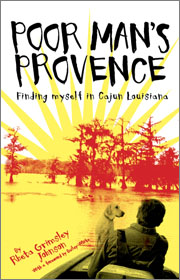This Is Your Brain on Ebooks . . .
Monday, December 28th, 2009 by Randall WilliamsKindles, Sony Readers, Nooks, and other forms of ereaders have been prominently in the news during 2009. The long-heralded arrival of ebooks as a significant factor in the publishing industry finally seems to be here. We pondered the implications recently in Manhattan over coffee and tea with Chris Kerr, the senior partner in the Parson Weems sales group that represents NewSouth in the northeast. (We have sales reps in each region of the country to call on bookstores, chains, and wholesalers.) Chris is a 30-year veteran of book publishing and is one of the smartest, savviest book people we know. He asserts that this time around, the ebook is real.
Despite their high cost, both Amazon’s (the Kindle) and Barnes and Noble’s (the Nook) ereaders have been selling briskly, and rumors are rampant about Apple’s imminent entry into the category. One of the problems up to now has been a chicken and egg issue: so few people have had the ereaders that publishers didn’t have motivation to offer many titles as ebooks, and because there weren’t many ebooks available, people didn’t buy the readers. A tipping point seems to have been reached, and now publishers large and small are adding ebook editions as quickly as they can.
Another problem—for publishers—has been that there’s no standard format for ebooks; the Kindle, for instance, uses a proprietary format that won’t work on the Sony or B&N devices. However, the conventional wisdom is that a standard format is or soon will be emerging, which will leave publishers free to worry about other thorny issues such as retail pricing models, piracy, and how to calculate (and/or negotiate) author royalties. Like other book publishers, NewSouth is watching closely to see which standards emerge so that we can more confidently offer our titles to readers who want them in electronic formats. Presently, less than a fifth of our titles are available as ebooks; we plan to have them all in ebook format of one variety or another by the end of 2010. Going forward, we’ll probably produce print and ebook editions simultaneously.
Some people can’t wait to get their hands on an ereader; others say the last thing they want is to read a book on a digital screen. Fair enough; traditionalists can save several hundred dollars, and the early adopters can sprint through the airport confident they have enough reading material to keep themselves occupied during their Grand Tour of Europe—in a device that fits in their palm and weighs less than a pound. To each his own.
But what of the experience of reading on a digital screen? What will that feel like? What does it portend for literature, for comprehension, for the future of writing and reading? Back in October the New York Times asked several smart people for their opinions on these questions. You might find their responses interesting and can read them here.

 NPR’s Debbie Elliott visited with syndicated columnist
NPR’s Debbie Elliott visited with syndicated columnist 
